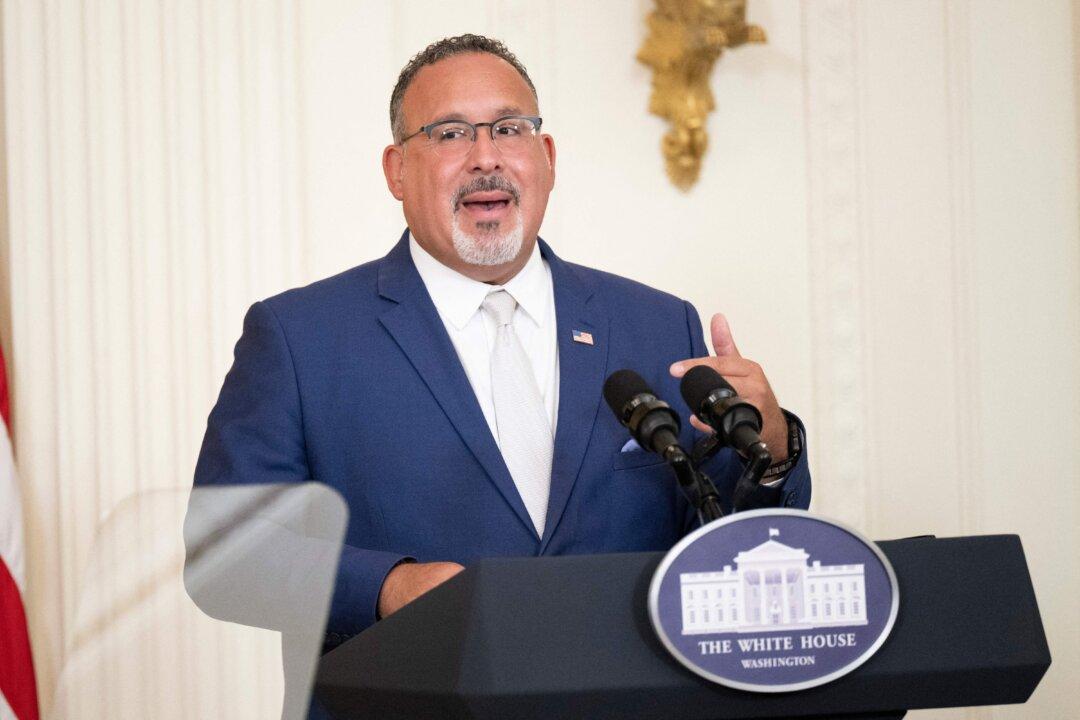U.S. Education Secretary Miguel Cardona said he was open to using whatever means available to dissuade colleges from giving preferential admissions to the children of wealthy donors and alumni.
Mr. Cardona, in an interview with The Associated Press on Wednesday, was asked about the possibility of using federal funds as either a carrot or rod on legacy admissions practices.





